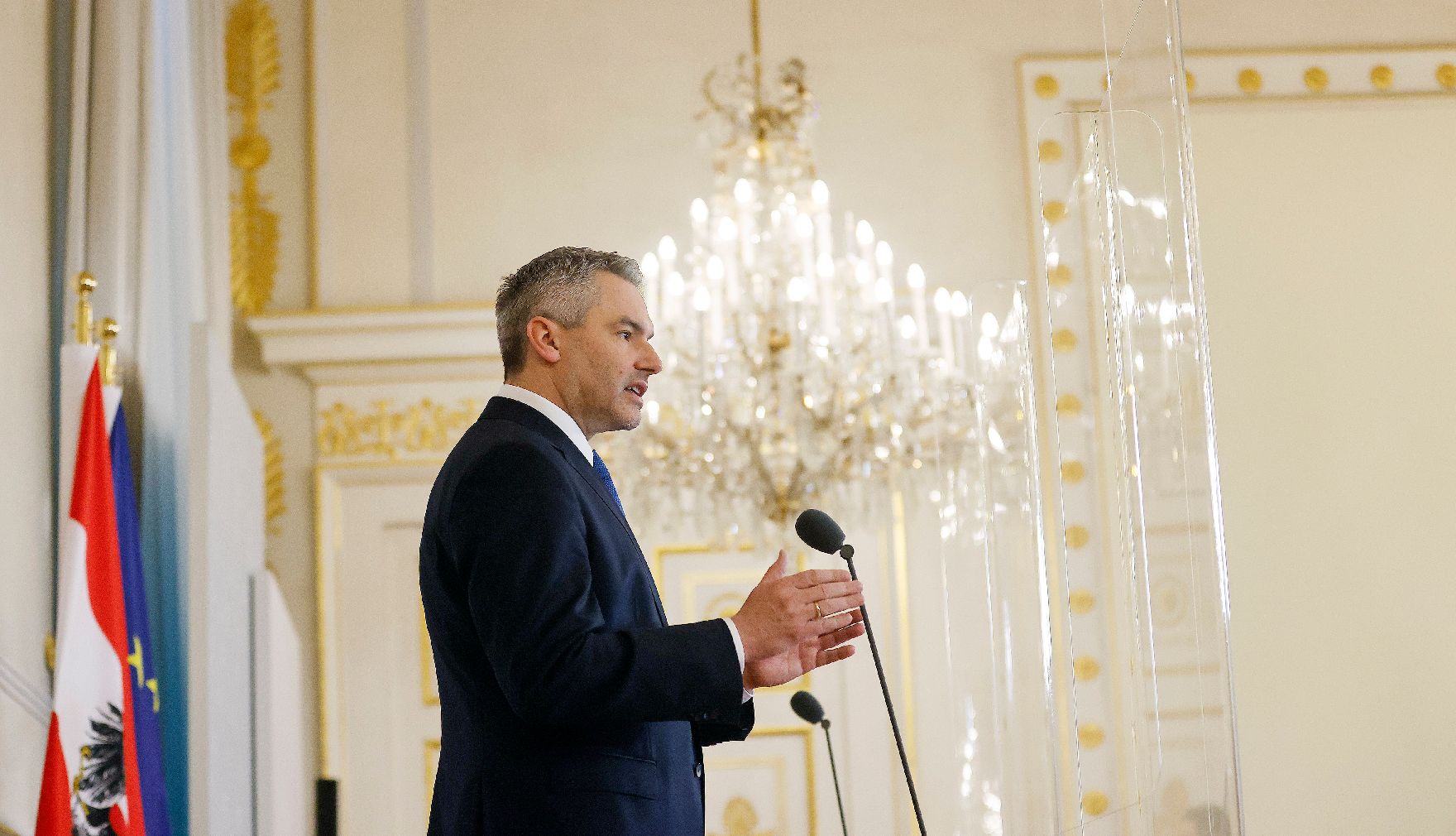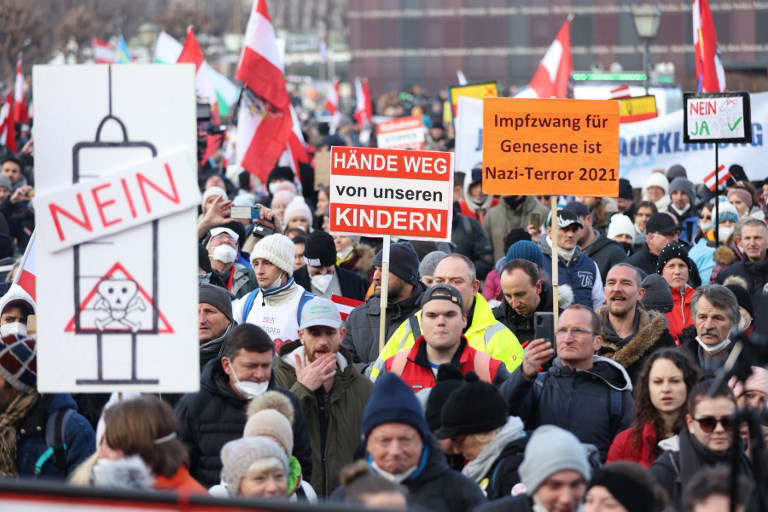More than two months after implementing it, Austria has lifted the lockdown on unvaccinated people, as a council of health experts set up by the government deemed that the measure was no longer needed.
Austria became the first EU country to confine people who have not received the Covid-19 vaccine in November last year to stop the spread of the virus and boost the vaccination rate of its population as it was facing the fourth wave of the pandemic. The government announced on Wednesday it would lift the measure on Monday.
"Omicron has initiated a paradigm shift compared to Delta. Because hospital and intensive care bed capacity remains stable, the lockdown for the unvaccinated will end next Monday," the country's Chancellor Karl Nehammer said.
Experts of the GECKO committee set up to combat the pandemic argued for the lifting of this measure as there is no immediate threat of intensive care capacities at hospitals being overstretched.
However, the country's 2G rule, which states that only vaccinated people can gain access to large parts of public life, remains in place. Essentially, the lifting of the measure means unvaccinated people will be allowed to leave their homes without a valid reason. Aside from being allowed into essential shops, most activities are still off-limits.

Chancellor Karl Nehammer. Credit: Austrian government
The regulations on wearing FFP2 face masks, which provide a better layer of protection and capture 94% of particles, in most public spaces will continue to apply.
Stable situation, but caution still needed
Although the country is still recording high infection rates — it reported almost 30,000 new cases on Wednesday, according to Health Minister Wolfgang Mückstein — the death and hospitalisation rates have remained relatively stable.
Related News
- Belgium's coronavirus barometer applies until end of June, says Vandenbroucke
- Time for Member States to drop additional travel measures, EU says
- 'Not keeping unnecessary measures': Verlinden wants CST to end soon
"At the same time, it is important that we remain cautious. We are taking our cue from the countries that are about three weeks ahead of us. It is encouraging that we are on a good path," Nehammer said, adding that this is why one of the most restrictive measures is being lifted.
As soon as the peak of the fifth coronavirus wave is reached, restrictive measures will be reviewed, Nehammer stressed, including the measure that is most controversial in Austria: the closing time of the catering industry at 22:00.
Around 75% of the entire population has now been vaccinated, 10% more than when the lockdown for unvaccinated people was introduced. However, this figure is not as high as the government hoped, which is why Austria is making vaccination compulsory from 1 February 2022.
Ten days ago, the Austrian government presented more details on the vaccination mandate, including that it will apply for the entire adult population, and that a probation period will be in place until 16 March, after which controls will be carried out and penalties imposed where needed.
On 1 February, Austria will become the first country in Europe to make vaccination against the coronavirus compulsory for the entire adult population – Ecuador made it compulsory for anyone aged over five in December – with the government stressing that the means to freedom is compulsory vaccination.

